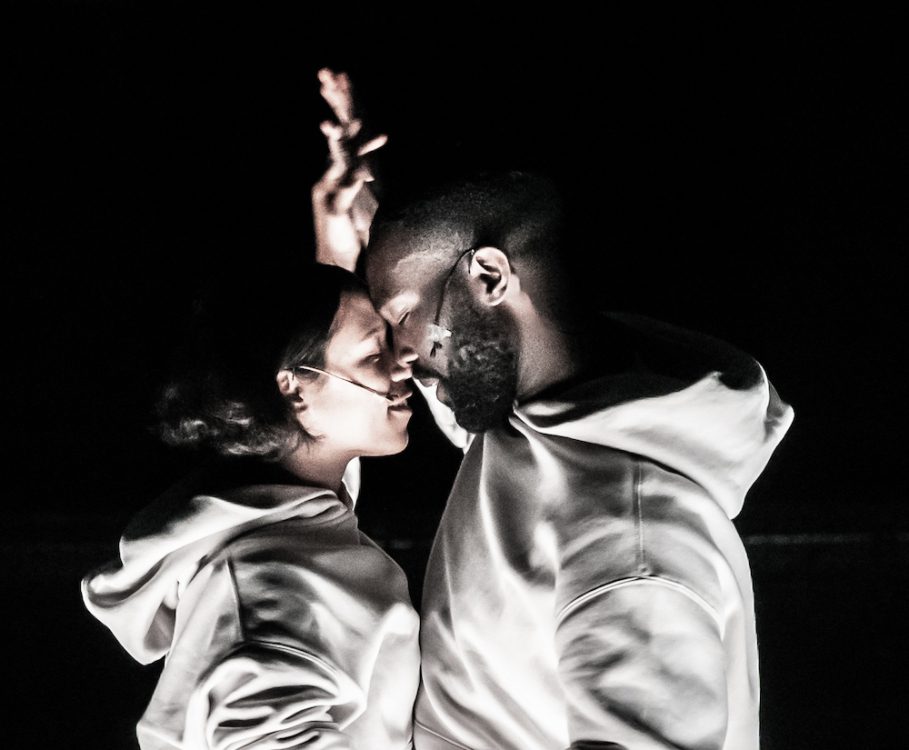What is love, anyway? This is the question at the heart of The Effect. Is it a simple matter of chemical attraction, heightened dopamine on initial attraction that we reverse engineer into something more meaningful? Or is this clinical explanation too, well, clinical?
Tristan (Paapa Essiedu) and Connie (Taylor Russell) are volunteers on a drug trial. They have agreed to be locked away together for weeks and given an increasing dose of a new experimental drug – discussed as a treatment for depression.
This is the other area explored in The Effect – how do we trust our feelings in an increasingly medicalised world? Is depression a disease or just a reasonable response to everything life throws at us. Are we right to want to medicate those feelings away or does doing so take something from us?
Overseeing the experiment on a day-to-day basis is Dr Lorna James (Michele Austin) who in turn is overseen by her boss Dr Toby Seely (Kobna Holdbrook-Smith) from the drug company. It soon becomes clear that each has their own demons, and the pair have a chequered history.
I have studied The Effect as part of a directing course I took last year. On the page, it’s a complex piece to follow. The dialogue intercuts and the sense of it is both precise in delivery and ambiguous in tone. On stage, this is an electric production. Jamie Lloyd’s stunning direction follows the power and pace of Lucy Prebble’s writing and uses it’s strength to soar. It doesn’t lose either that ambiguous joy or its pace. But in the hands of such a confident cast and crew it speaks as my to the amygdala as it does to the frontal cortex – to heart and to head.
It would be hard to single out a performance here. Each actor embodies their character perfectly. Tristan is charming, enticing and has an air of slight emotional danger. Connie is staid and rule-following – though desperately tempted not to be.
The interplay between Connie and Tristan is – at least at first – fairly simple. Two charming young people, thrown together by circumstances, meet and are attracted to each other. While their journey – which is central to the play – has complications it is at heart that simple. What matters is the question of how much that matters. And whether that simplicity is real and the love earned.
More complex is the relationship between the clinicians. Lorna is a sufferer of depression, who seems at once to be both test overseer and subject herself. Toby is manipulative and charming – possibly an echo of a potential future Tristan. He is convinced his motives are good, the audience may be less sure.
At 1 hour 40 minutes without interval, I was worried I would be too long without a break. But this was absolutely the right choice artistically. An interval would have ruined the pace of this production which never broke and never failed to engage. I was never restless nor was I clockwatching.
The Effect is a stunning play and this production crackles with energy, joy, wit, charm and a set of dark questions it offers no pat answers to. This is the National Theatre at it’s absolute best and I cannot recommend this highly enough.

